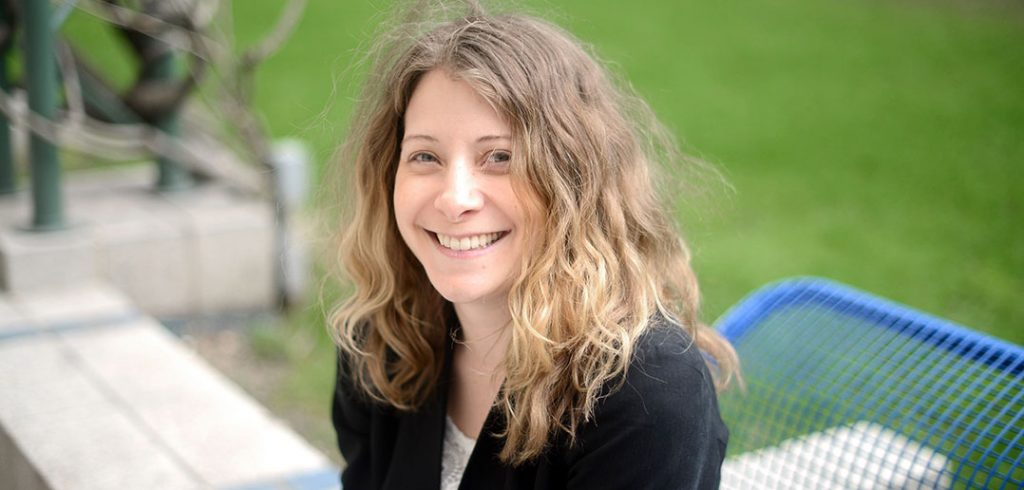As a government attorney, Merritt Juliano was trained to look exclusively at the facts of a case. Yet the more she investigated potential violations of the law, the more she began to wonder if the facts were only telling half the story.
“I was always interested in people’s backstory; I wondered what experiences in their lives had led them to the position they were in,” said Juliano.
“I was interested in the human aspect of the job… but that side of the story wasn’t part of the agenda. So, I decided to do something different with my life.”
Desiring to work for social change rather than prosecute violations of the law, she enrolled in the clinical social work program at the Graduate School of Social Service (GSS). When she arrived, though, she quickly realized just how different the social work and legal professions are.
“In the legal profession, the focus is much less on emotion. It’s more about the facts and the law. But social work requires a certain amount of emotional intelligence,” she said. “It was very difficult in the beginning. I wasn’t even sure if I was going to make it through, because I was feeling as though I didn’t fit in.”
She held on, and gradually she was able to incorporate her analytic training into a more flexible and intuitive style. Most importantly, she said, she learned to “trust [her]gut,” which was critical when it came to facing the unknown in her fieldwork placements.
Her first placement involved counseling young men with substance use disorders at Odyssey House Leadership Center. She did her second placement at the Training Institute for Mental Health, an outpatient mental health clinic. Alongside her fieldwork, Juliano volunteered at the New York Peace Institute, where she conducted community and civil court mediations to help families and individuals settle disputes.
As she grew more comfortable in her role as a social worker, she began to realize that she had discovered her life’s work.
“I felt like I was sharing in the human experience with other people, and I realized that this was definitely what I want for the rest of my life—to have those connections with others and to make a difference in someone’s life,” she said.
“Now, looking back [on my time in the GSS program], I can say it was a transformative experience.”
During her time at GSS, Juliano also helped to launch the 21st Century Social Justice Journal, the school’s first student-run scholarly journal.
“The journal was founded to be interdisciplinary because we believe social work spans so many different fields,” she said. “We’re hoping to get a wide variety of articles, from neuroscience to economics, from both Fordham and non-Fordham students.”
Following graduation, Juliano plans to pursue additional training in either psychoanalytic therapy or in family therapy.
“We don’t live as individuals in a vacuum. We live interpersonally, always intersecting with other people in relationships,” she said. “There’s always some relational aspect to someone’s conflict. I think it’s healthier to focus on the whole person, including the family system they’re functioning in.”

